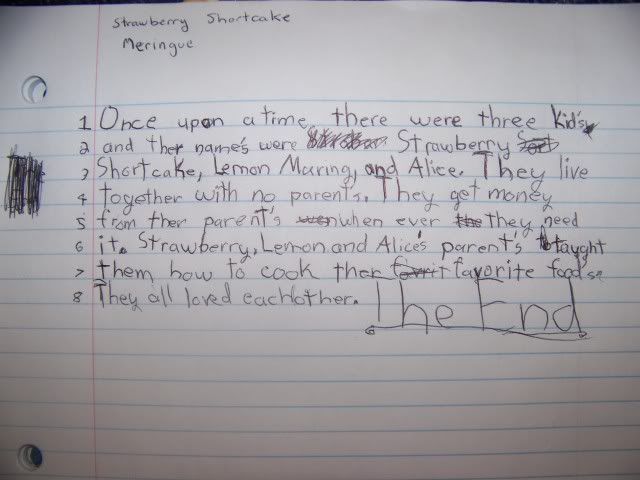I've been struggling for a few years now with how the gift of healing works, in the charismatic sense. I know that these healings happen. I've seen a few of them. But I have so many questions.
Are we to pray as Jesus did, ordering the sickness out? Are we to humbly ask God to do the healing, if it is his will? What about the people who we pray for, but aren't healed? Did one of us lack faith and mess the whole thing up? Should we ask God whether he wants the person to be healed, before we pray for healing? Or should we assume he wants everyone to be healed? Should we expect everyone to be healed instantly - is that what faith is? Or should we just keep praying until there is some proof of healing? And so on and so forth.
Then one day I picked up a book called The Power to Heal by Fr. Francis MacNutt and started reading. It felt like God hitting me over the head with answers.
One insight in particular that I got out of the book I would like to share with you.
2. Background: The Two Theological Positions
A friend of mine1 once told me that it was God's will for everyone to be healed; the proof was that Jesus healed everyone who asked him. Jesus never turned someone away and said that God was keeping them sick for a reason. This idea contrasts sharply with the current emphasis in Catholic writing on embracing sickness as a suffering that we should offer to God2. The fact that Jesus healed everyone is compelling, in precisely the same way that Jesus choosing only males for his Twelve apostles is a compelling argument against women priests.
At the same time, I couldn't quite buy it. Some five or six years ago, a lady that I was peripherally acquainted with got a virulent form of cancer. Whenever I went to pray for her, I felt distinctly that God was telling me not to pray for her healing. I could pray for her soul, I could pray for her family, but not for her healing. She died some three months or so later. More recently, there was an elderly man at my parish who developed some sort of fatal lung condition. I prayed for his healing, but my prayers felt empty. The man himself spoke of growing closer to God through his illness (which he eventually died of). My own experience told me that sometimes sickness was a part of God's will, something he was bringing good out of. Also, God is not limited in power; if it was really his will for everyone to be healthy, then why would he allow people to be sick?
I simply could not reconcile these polar philosophies; I was stuck in limbo between them.
3. The Insight
And then I read the following passage from the book (italic his emphasis, bold mine):
So I must recognize that the reason many people are not healed (or are improved but not altogether healed) is not that God wills it, but it is simply a factor of my own spiritual and human weakness. I must do the best I can, humbly recognize my littleness and determine to grow more, without straining. I don't need to get into lengthy disquisitions about God's will; I just need to recognize that the basic reason people I pray for are not healed has little to do with God's perfect will, or to a lack of faith on the part of the sick person. If anything, it has to do with my own lack of spiritual power. I need to be more in union with Jesus, the source of that power, than I now am.
God's perfect will.
God's perfect will.
His perfect will, as opposed to what he is willing to settle for.
I don't think it had ever occurred to me before that God's will wasn't a black and white, "yes" or "no", sort of thing. I mean, I know I've heard some theology down the line about God's permissive will vs.... well, I forget the other term. Something implying perfect will, I'm sure. But that had never registered in my mind as a distinction that particularly correlated with, well... anything. It was just one of those abstract thought-games, that theologians seem to have fun with. Now, though, as I thought about the difference between "what I ideally want" and "what I am willing to settle for", an example came to mind.
4. The Example: Thinking in Mom Terms
Last July, as a sort of experiment in our homeschooling, I told Kyrie I wanted her to write a story. It had to be at least five sentences long. It could be about anything she wanted, but she had to write it. When she resisted, I told her that if she didn't do it, she had to write "I will obey Mom" on every line of one page of her notebook.
 |
| I meant once on each line, but this is better, so I didn't say so to her. |
This is what she handed me3.
The second day I did the same thing.
 |
| I like how it takes her a few lines before her words line up with each other. |
With the same results.
 |
| All world-building and no plot. Exactly how I write, the couple times I tried fiction. |
Finally, on the third day, she came up with something.
The point is, she obeyed me. Not just on the third day, when she finally wrote something, but the first day. I had given her a choice: write a story, or write "I will obey Mom". She did the latter. She did my will.
But she didn't do my perfect will.
She didn't do what I really wanted her to do, but she did what I was willing to settle for, for the time being.
5. Conclusion
In the same way, I can now see it being God's perfect will for everyone to be healed. When we resist Him, he may settle for something else; he may settle for us being unhealthy4. But just as I got what I wanted with Kyrie in the end, so too will he get the health he wants for us, in the end, at the Resurrection if not sooner.
And even though he has been settling for sickness, and even if he continues to settle for sickness, for his own mysterious reasons, when I am praying, right here and now, for my own or someone else's healing, I can trust that that healing is what God really wants.
1. An online friend.
2. MacNutt makes the interesting distinction between suffering and sickness; Jesus suffered, but he was never sick. (And we are to imitate Him.) The author also has a curious way of insisting both that God wants everyone healed and that there is such a thing as redemptive sickness, as some saints have experienced.
3. When I showed Ken the picture, he said, "That's true resistance." Which I thought was interesting, since it was, in fact, a textbook example of what Steven Pressfield calls Resistance, in his book The War of Art, which is part of what I was thinking about in asking Kyrie to write the story in the first place.
4. So, clearly, the path towards health lies in resisting God less. For the record, I'm not saying that the sick person is necessarily the one doing the resisting. It may be that God wants them to be healed by someone who is resisting the gift of healing, for example. And the blind man in John 9 was blind so that everyone could be amazed and brought closer to God when Jesus healed him. Ultimately, this means that it was their resistance, and not the blind man's, that was the reason God settled for the blindness.

No comments:
Post a Comment